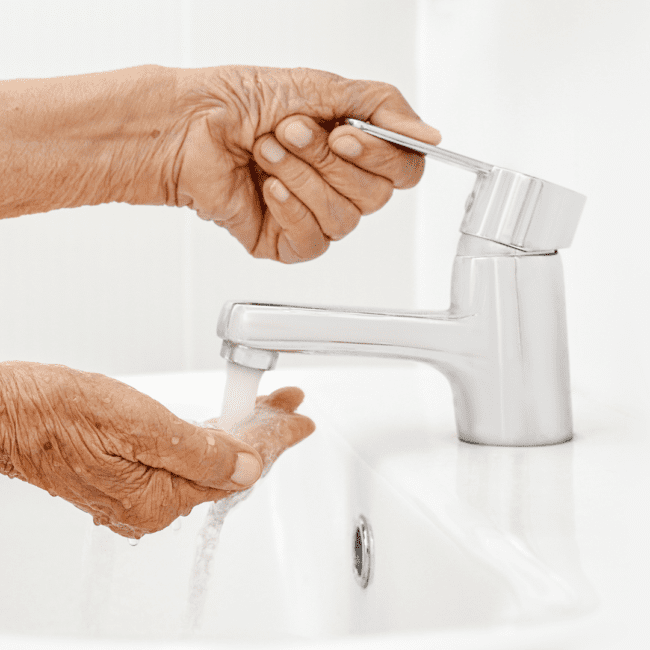Setting out on the path to find the perfect home care provider for elderly loved ones can feel like navigating through a maze, filled with questions and decisions at every turn. Samarth Elder Care understands the weight of this decision, especially for families who may not be able to be there in person for their loved ones. This blog serves as a compass, designed to guide readers through the process of selecting home care services with ease and confidence.
The discussion delves into the essence of what it means to choose a home care provider, blending personal insights with professional advice to illuminate the path towards making the best choice for one’s family. From understanding the different types of care available to recognizing the signs of quality service, the aim is to assist in navigating these waters.
The blog explores the key steps and considerations in finding a home care solution that brings peace of mind, comfort, and well-being to elderly individuals, all while ensuring their dignity and respect are upheld. Welcome to a guide on this important journey.
Understanding Home Care Services
When it comes to selecting home care services, understanding the spectrum of care available is crucial. Home care services are broadly categorized into medical and non-medical care, each tailored to meet the diverse needs of the elderly. This differentiation is essential for families to consider when they choose a home care provider.
The choice between medical and non-medical care hinges on the specific needs of the elderly individual. A thorough assessment can help in selecting home care services that provide the right level of support, ensuring the well-being and comfort of loved ones.
| Type of Care | Services Offered | Ideal For |
| Medical Home Care | Skilled nursing, physical therapy, medical monitoring | Individuals requiring medical attention or rehabilitation |
| Non-Medical Home Care | Personal care, companionship, meal preparation, transportation | Individuals needing assistance with daily living activities |
Assessing Elderly Needs
When embarking on the journey to find home care for the elderly, understanding the level of care required is a pivotal first step. This assessment is not just about ticking boxes but involves a comprehensive look at the individual’s life, ensuring their care plan is as personalized and effective as possible. Here are some factors to consider:
Worried about your Elderly parents back home?
Call us today to arrange Care Like Son and Daughter™.
- Medical Needs: Does your loved one have any chronic conditions that require medical attention or medication management? Are there any mobility issues that need to be addressed?
- Personal Care: Assess the need for help with daily living activities such as bathing, dressing, eating, and toileting.
- Companionship: Consider the emotional and social needs. Isolation can lead to depression and anxiety, so the presence of a companion might be just as crucial as physical care.
- Household Tasks: Determine if assistance is needed with cooking, cleaning, shopping, and managing the household.
Involving your elderly loved ones in the decision-making process is not just a courtesy; it’s a necessity. Their comfort, satisfaction, and sense of autonomy are paramount. Here’s a bullet-point guide to help you through this assessment:
- Evaluate medical and physical needs: For instance, your loved one might have diabetes requiring regular insulin injections and blood sugar monitoring, coupled with arthritis that limits their mobility and ability to grasp objects. These conditions necessitate a caregiver skilled in managing chronic illnesses and providing mobility support.
- Consider personal care requirements: Your family member may struggle with the activities of daily living, such as bathing, dressing, and grooming due to weakened physical strength or cognitive decline. Assistance from a caregiver with these tasks can help maintain their hygiene and dignity.
- Assess emotional and social needs: If your loved one often feels lonely, showing signs of depression or withdrawal since the loss of a spouse, they might benefit significantly from a companion who provides not just conversation and company but also encourages participation in social activities and hobbies they enjoy.
- Identify household assistance needs: Suppose your elderly parent finds it challenging to keep up with daily chores due to limited mobility or low energy levels. In that case, they may need help with household tasks such as cleaning, laundry, grocery shopping, and meal preparation to ensure a safe and healthy living environment.
By taking a holistic approach to assessing needs, you ensure that when you choose a home care provider, you’re selecting one that aligns perfectly with your loved one’s requirements. This careful consideration lays the groundwork for a care plan that enhances their quality of life, respects their independence, and meets their medical and personal needs.
Selecting a Home Care Provider: A Step-by-Step Guide
Selecting the right home care provider is a critical decision that can significantly impact the well-being and quality of life of your elderly loved ones. Here’s a step-by-step guide to ensure you choose a home care provider that meets your home care provider criteria effectively:
- Define Your Care Needs: Start by assessing the specific care needs of your loved one. This could range from assistance with daily living activities, medical care, to companionship. Understanding these needs will help you narrow down your search to providers who offer the necessary services.
- Research and Recommendations: Begin your search by gathering recommendations from friends, family, and healthcare professionals. Utilize online resources, reviews, and testimonials to compile a list of potential providers. This initial research is crucial in finding a reputable service that aligns with your requirements.
- Check Credentials and Experience: Ensure the home care providers on your list are licensed, accredited, and have a good track record. Experience in handling specific conditions similar to your loved one’s needs is a significant plus. Credentials and experience are non-negotiable when it comes to providing quality care.
- Interview Potential Providers: Schedule meetings or calls with potential providers to get a sense of their approach and ethos. This is a good time to ask about their staff’s qualifications, their care philosophy, and how they handle emergencies or specific health conditions.
- Review Financials: Understand the cost structure, including hourly rates, packages, and any additional fees. It’s also wise to inquire about insurance coverage or financial assistance options to ensure the services are within your budget.
- Ask for References: Request references from the providers to get firsthand accounts of their services. Speaking to current or past clients can provide valuable insights into the provider’s reliability, professionalism, and the quality of care they deliver.
- Make an Informed Decision: After thorough research and consideration, choose a provider that best matches your loved one’s needs and preferences. The right provider should not only offer the necessary services but also align with your loved one’s personality and lifestyle.
Here’s a bullet-point summary to guide you through the process:
|
By following these steps, you can find a home care provider that offers peace of mind, knowing your loved one is in capable and caring hands. Remember, the goal is to enhance their quality of life while ensuring their safety and comfort.
10 Questions to Assess Home Care Providers
When it comes to selecting home care services for your loved one, asking the right questions during your search is crucial. These questions will help you gauge the quality, reliability, and fit of the home care provider.
Here are 10 critical questions to consider:
- Is the home care agency licensed?
- Is the home care provider accredited by a leading national organization?
- How do you match caregivers with clients?
- Does the home care agency perform criminal background checks on caregivers prior to hiring?
- What training do your caregivers receive?
- Can we meet the caregiver before they start?
- How do you handle emergencies or caregiver absences?
- What measures do you take to ensure quality care is provided?
- Can you provide references from current or former clients?
- If I am dissatisfied with my caregiver, can I request a replacement?
Setting Up and Monitoring Care for Seniors at Home
Initiating a care arrangement involves careful planning and open communication. Creating a detailed care plan is the first step after you choose a home care provider. This plan should outline the specific needs and preferences of your elderly loved one, ensuring that the home care provider criteria are met. It’s crucial to establish clear communication channels among the family, the elderly individual, and the caregiver to facilitate seamless care coordination.
Regularly reviewing the care setup allows for necessary adjustments, ensuring the services remain aligned with the evolving needs of your loved one. Incorporating regular check-ins supports the dynamic nature of selecting home care services, fostering a responsive and adaptable care environment. This approach not only enhances the quality of care but also upholds the dignity and satisfaction of those receiving it.
How Samarth Can Help?
In the quest to find the best home care for the elderly, Samarth offers a guiding light with its dedicated elderly home care services. Recognizing the individuality of each senior, they excel in formulating care plans that resonate with the personal needs and preferences of those in their care. This personalized approach ensures that families can navigate the process of selecting home care services with confidence, backed by the expertise and compassion that Samarth brings to the table.







